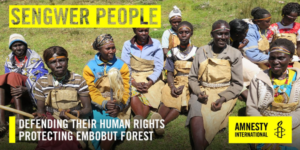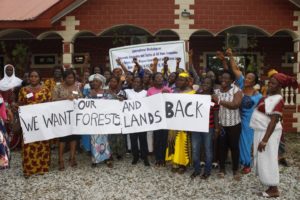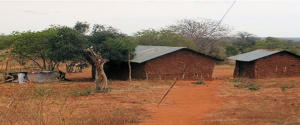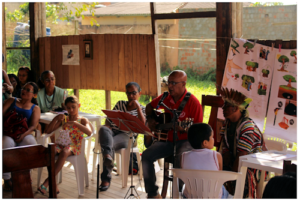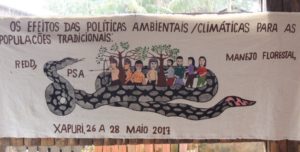California’s Cap & Trade
Environmental racism and cap-and-trade in California
In July 2017, California voted to extend its cap-and-trade scheme until 2030. Some environmental groups and the oil and gas industry support the legislation. Environmental justice groups oppose it. This post summarises some of the responses to the continuation of cap-and-trade in California.
Carbon trading was born with one foot in the grave and another on the banana peel. Gov. Brown’s championing free-market claims of the efficacy of cap-and-trade are a hair removed from the “voodoo economics” of the Reagan-era.
Nowhere on earth — not in the largest market (the EU ETS), nor in the smaller regional markets from the New England Regional Greenhouse Initiative (RGGI) market to the California cap-and-trade market to the newly minted Chinese market — has the carbon price ever been sufficiently high enough to drive the technological innovation to fully stop carbon pollution.
Governor Jerry Brown is working with the oil industry on California’s climate policy
California’s Global Warming Solutions Act of 2006 (AB 32) expires in 2020. California’s governor, Jerry Brown, is holding a series of closed-door negotiations with the fossil fuel industry to re-write California’s climate change policy for the period 2021 to 2030.
Early in June 2017, two Assembly Bills (AB 151 and AB 378) failed to get past California’s Assembly.
AB 378 was authored by Christina Garcia and two other Democrat Assembly members. It was supported by the California Environmental Justice Alliance and other members of California’s Environmental Justice movement.
In an Assembly vote on 1 June 2017, AB 378 was rejected by AB-378 was rejected by 35 votes for to 39 votes against.
AB 151 was also authored by Democrat Assembly members – Autumn Burke and Jim Cooper. It was far more industry-friendly than AB 378, and was supported by the Western States Petroleum Association and other industry groups.
Forest peoples in Brazil send a message to California: reject tropical forest offsets
California Governor Jerry Brown has aggressively positioned himself as a global climate leader to fill the vacuum created by the arrival of an ignorant climate change denier in the White House. But not all that glitters is green. The Governor has spent the last months promoting the expansion of complicated market-based carbon trading mechanisms, known as “Cap-and-Trade,” as a cornerstone of state and global climate policy — in a move that directly threatens vulnerable communities both in California and abroad.
California’s current Cap-and-Trade program is set to expire in 2020. Last summer the state legislature established ambitious and unprecedented emissions reductions goals for 2030, without extending the authorization of Cap-and-Trade. The Governor signed the emission reductions goals into law — but he made it clear that Cap-and-Trade was the primary option he would consider for meeting those goals.
Beyond Cap-and-Trade: Many Environmentalists Say California Will Improve Climate Policy If It Reduces Emissions at Source
Gov. Jerry Brown has so far been unable to muster two-thirds of state legislators to vote to extend the program beyond its current 2020 expiration. By Will Parrish Environmentalists say cap-and-trade doesn't cut enough emissions in the East Bay. California's...
Calif. Carbon Plan Puts Rainforest Credits Down, Not Out
By Juan Carlos Rodriguez Law360, New York (July 19, 2016, 9:53 PM ET) California air regulators said last week that the Golden State's carbon trading program won't allow companies to buy credits generated from the preservation of Mexican and Brazilian rain forests to...
Trading on Thin Air: Fictive REDD+ Carbon Chaos in the World’s Forests
The United Nations’ disastrous REDD+ offset program has hit the ground internationally. Its potential adoption by the California Air Resources Board will only make things worse. Luan F. Makes Marks, Ph.D. The Basics Some state, national, and international governments,...
Decision on REDD in California postponed – for a couple of months
Yesterday, California’s Air Resources Board released a preliminary draft of proposed amendments to its Global Warming Solutions Act (AB 32) aimed at extending the cap and trade scheme beyond 2020. The big news for REDD watchers is that the ARB’s preliminary draft...
Greenpeace opposes REDD offsets in California. But that’s not what EDF’s Steve Schwartzman wants you to think
by Chris Lang - REDD Monitor At a recent workshop in Sacramento, Environmental Defense Fund’s Steve Schwartzman was waving around copies of a letter in favour of California using REDD offsets in its cap and trade scheme. Following the letter was a list of NGO logos,...
California EPA Live Webcasts – Cap-and-Trade Workshop – Sector based
Cap-and-Trade Workshop - Sector based - English: CalEPA Headquarters, Byron Sher Auditorium, 9:30 AM - 5:00 PM - Coordinator: Sean Donovan sdonovan@arb.ca.gov File: 491820 Video: http://www.calepa.ca.gov/broadcast/player/?group=LiveVideo&source=byron&id=491820 Audio:...
Lima Declaration – People’s Climate Summit
Lima, 11 December 2014 The Summit of peoples climate change, held in Lima from 8 to 11 December 2014, is expression of the processes of mobilization and resistance undertaken by a variety of organizations, movements, platforms, networks and collective social, labor,...
read moreBrazilian Indigenous Leader: Carbon Trading Scheme “REDD” a False Solution to Climate Change
From Democracy Now The controversial carbon trading scheme known as REDD, or Reducing Emissions from Deforestation and Forest Degradation, has set off protests not only in Africa, but also in South America, especially in the Amazon region. We speak to Chief Ninawa...
read moreREDD on trial
“As long as nature is seen as property in law, there can be no justice for communities, the climate or nature” The International Tribunal for the Rights of Nature took place on 5 and 6 December 2014 in Lima. On trial were corporations, the United Nations, and...
read moreCOP 21
Indigenous Peoples: UN Paris Accord could end up being a Crime against Humanity and Mother Earth
Indigenous Peoples: UN Paris Accord could end up being a Crime against Humanity and Mother Earth FOR IMMEDIATE RELEASE Contacts: Dallas Goldtooth +33 75 1413 823 USA: 708 515 6158 dallas@ienearth.org Kandi Mossett +33 75 1414 195 mhawea@gmail.comNovember 30, 2015...
read morePRESS CONFERENCE: “REDD: Contradiction and Violation of the Sacred”
(Dec 1, 2015) Indigenous leaders, Tom Goldtooth, Gloria Ushigua, Alberto Saldamondo, and Berenice Sanchez spoke at the COP 21 at a Press Conference on how REDD (Reducing Emissions from Deforestation and Degradation) violates Natural Law and the Sacred. REDD, a carbon...
read morePeoples Assembly COP20 Lima 2014
Lima Declaration – People’s Climate Summit
Lima, 11 December 2014 The Summit of peoples climate change, held in Lima from 8 to 11 December 2014, is expression of the processes of mobilization and resistance undertaken by a variety of organizations, movements, platforms, networks and collective social, labor,...
Brazilian Indigenous Leader: Carbon Trading Scheme “REDD” a False Solution to Climate Change
From Democracy Now The controversial carbon trading scheme known as REDD, or Reducing Emissions from Deforestation and Forest Degradation, has set off protests not only in Africa, but also in South America, especially in the Amazon region. We speak to Chief Ninawa...
REDD on trial
“As long as nature is seen as property in law, there can be no justice for communities, the climate or nature” The International Tribunal for the Rights of Nature took place on 5 and 6 December 2014 in Lima. On trial were corporations, the United Nations, and...
From South America to Africa, “Capitalist” Solutions to Climate Change Seen as Path to Catastrophe
From Democracy Now We are broadcasting from the United Nations climate summit in Lima, Peru, where high-level talks have just gotten under way. On Tuesday, Bolivian President Evo Morales called on delegates to include the wisdom of indigenous people in the global...
Permanent Forum on Indigenous Issues
Indigenous Peoples denounce carbon offsets at United Nations; Demand Cancellation of REDD+
FOR IMMEDIATE RELEASE May 18, 2016 New York – A false solution to climate change known as REDD+ causes conflict and is a new form of colonialism and must be immediately canceled, Indigenous Peoples denounced at the United Nations. REDD+ (Reducing Emissions from...
read moreMiscellaneous
Open letter by the Swift Foundation rejects REDD and carbon trading as false solutions to climate change
 On 11 September 2018, shortly before the Global Climate Action Summit in San Francisco, 17 foundations signed on to a “Joint Statement Supporting Forests, Rights, and Lands for Climate”.
On 11 September 2018, shortly before the Global Climate Action Summit in San Francisco, 17 foundations signed on to a “Joint Statement Supporting Forests, Rights, and Lands for Climate”.
The foundations promised that by the end of 2022, they would provide at least US$459 million in support of land-based solutions to climate change.
The Swift Foundation, one of the foundations that signed on to the statement, issued an open letter yesterday, clarifying its interpretation and commitment to the statement. In the open letter, the Swift Foundation explicitly rejects REDD, and carbon trading schemes of any kind, as false solutions.
read moreKenya’s REDD programme risks exacerbating violence against indigenous Sengwer communities in Embobut forest
Since January 2014, Kenya Forest Service guards have carried out a series of violent evictions of the Sengwer indigenous people from their homes in Embobut forest. While the evictions took place the Kenya Forest Service was funded by international donors, including the World Bank, the European Union, and the Finnish government.
These internationally funded aid projects failed to learn the lessons from the previous projects. The evictions and violence against the Sengwer, and other indigenous peoples in Kenya, were simply ignored in project documents.
Now the UNDP and the Japan International Co-operation Agency (JICA) are working on developing a REDD programme in Kenya. A Draft Project Document produced in February 2018 shows no sign that any lessons have been learned.
read morePetition: Stop all forms of abuse against women in large monoculture tree plantations
The petition is an urgent request from women in Africa to stop the suffering and the violent impacts the expansion of industrial oil palm plantations is creating on womens´ lives, that affect women in and outside the African continent: Violence, sexual abuses, rape, harassment, persecution, destruction of their means of livelihoods.
Women want their lands back from the companies that got illegitimately hold of these through concessions given to them by governments. The women want their lands and forests back to continue being able to produce their food, they want food sovereignty!
read moreIFC Throws Lifeline to REDD+ Project-Shoring up World’s Largest Mining Co.
BHP Billiton is the world’s largest mining and petroleum company running mines in 13 countries. Its main offices are in Melbourne, Australia, and in London, UK, where the company sells shares on the London Stock Exchange.
The London Mining Network, an alliance of human rights, development, environmental and solidarity groups, has compiled information about the many conflicts between the company and communities and workers affected by its mining operations and environmental disasters caused by the company’s mines. (1) These include the catastrophic flood of 40 million tonnes of toxic mud waste released into the Doce river in Minas Gerais, Brazil, in 2015 – the biggest environmental spill in the country’s history. (2) The toxic mud spread all the way to the sea, killing 19 people and requiring the evacuation of 600 more. Almost two years on, the Doce river still runs red from the iron ore in the water. BHP Billiton co-owns the mine with Brazilian mining firm, Vale. The two companies have faced public campaigns over inadequate clean-up efforts and compensation to those affected by the disaster. They also face fines and national and international legal cases over responsibility for the breach of the dam that was supposed to prevent their toxic waste from spilling into the river.
read moreEnvironmental racism and cap-and-trade in California
In July 2017, California voted to extend its cap-and-trade scheme until 2030. Some environmental groups and the oil and gas industry support the legislation. Environmental justice groups oppose it. This post summarises some of the responses to the continuation of cap-and-trade in California.
Carbon trading was born with one foot in the grave and another on the banana peel. Gov. Brown’s championing free-market claims of the efficacy of cap-and-trade are a hair removed from the “voodoo economics” of the Reagan-era.
Nowhere on earth — not in the largest market (the EU ETS), nor in the smaller regional markets from the New England Regional Greenhouse Initiative (RGGI) market to the California cap-and-trade market to the newly minted Chinese market — has the carbon price ever been sufficiently high enough to drive the technological innovation to fully stop carbon pollution.
read moreFrom REDD+ projects to ‘jurisdictional REDD+’: more bad news for the climate and communities
For many people, REDD+ is about projects that save forests. In reality, however, REDD+ has never been about protecting forests and also no longer really is about projects but about programmes covering whole regions or provinces within a country. Though many REDD+ projects continue to exist, causing harm to indigenous peoples and forest communities by restricting their traditional forest use practises. (1)
The idea of REDD+ has its roots in the UN climate negotiations. It was negotiated as a tool that would allow companies and industrialized countries to continue burning petroleum, coal and natural gas while claiming the emissions this causes do not harm the climate. REDD+, its advocates claim, would provide cheap compensation for the release of these emissions into the atmosphere and provide money to finance forest protection. Companies in industrialized countries could burn fossil carbon at home, that is the carbon stored underground for millions of years, and pay someone in a tropical forest country to keep some trees standing as a replacement carbon store. (2)
read moreGovernor Jerry Brown is working with the oil industry on California’s climate policy
California’s Global Warming Solutions Act of 2006 (AB 32) expires in 2020. California’s governor, Jerry Brown, is holding a series of closed-door negotiations with the fossil fuel industry to re-write California’s climate change policy for the period 2021 to 2030.
Early in June 2017, two Assembly Bills (AB 151 and AB 378) failed to get past California’s Assembly.
AB 378 was authored by Christina Garcia and two other Democrat Assembly members. It was supported by the California Environmental Justice Alliance and other members of California’s Environmental Justice movement.
In an Assembly vote on 1 June 2017, AB 378 was rejected by AB-378 was rejected by 35 votes for to 39 votes against.
AB 151 was also authored by Democrat Assembly members – Autumn Burke and Jim Cooper. It was far more industry-friendly than AB 378, and was supported by the Western States Petroleum Association and other industry groups.
read moreForest peoples in Brazil send a message to California: reject tropical forest offsets
California Governor Jerry Brown has aggressively positioned himself as a global climate leader to fill the vacuum created by the arrival of an ignorant climate change denier in the White House. But not all that glitters is green. The Governor has spent the last months promoting the expansion of complicated market-based carbon trading mechanisms, known as “Cap-and-Trade,” as a cornerstone of state and global climate policy — in a move that directly threatens vulnerable communities both in California and abroad.
California’s current Cap-and-Trade program is set to expire in 2020. Last summer the state legislature established ambitious and unprecedented emissions reductions goals for 2030, without extending the authorization of Cap-and-Trade. The Governor signed the emission reductions goals into law — but he made it clear that Cap-and-Trade was the primary option he would consider for meeting those goals.
read moreXapuri Declaration: “We reject any form of climate colonialism”
From 26 to 28 May 2017, a meeting took place in Xapuri, in the state of Acre, Brazil. The meeting brought together Apurinã, Huni Kui, Jaminawa, Manchineri and Shawadawa indigenous peoples, representatives of traditional communities, rubber tappers, academics and supporting organisations. The meeting’s theme was, “The effects of environmental / climatic policies on traditional populations”. The meeting was supported by Friends of the Earth International, the Indigenous Missionary Council (CIMI), the Rosa Luxemburg Foundation and the World Rainforest Movement.
read more

